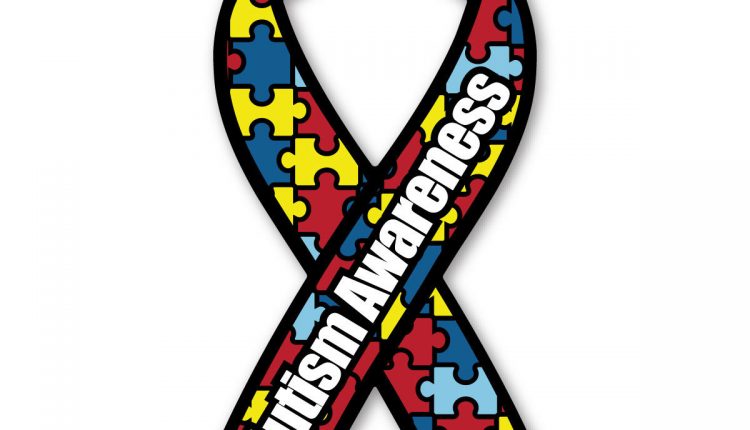
CLASP spotlights the experience of persons with Autism
UPDATE: 3/16/20 – Based on a campus-wide cancelation of events through April 30, all CLASP events are canceled for spring 2020.
Clear Lake Association of Senior Programs (CLASP) is hosting a speaker series throughout the spring semester that is free to the public. Scheduled events include Women in Business, The Art of Japanese Ceramics and The Lived Experience of Autism.
“CLASP cannot be accomplished without the support of those that take the time to attend and inquire about its mission such as yourself,” said Alexis Nwagui, program manager for the Office of Strategic Partnerships. “Moreover, CLASP would not survive without the bravery of our many speakers and panelists who deliver critical information for the betterment of our campus and community.”
On Thursday, April 2, at 5:30 p.m. in the Garden Room, CLASP is holding The Lived Experience of Autism panel where CLASP will bring in presenter Judy Blake, leadership and advocacy coordinator of Family to Family Network and family faculty and board member of LoneStar LEND; and presenter Andrew Bennett, research assistant at the University of Houston-Clear Lake (UHCL).
“I hope attendees will take away the ability or at least the openness to understand the experiences of those living and parenting those along the autism spectrum with a new lens,” Nwagui said. “A lens rooted in knowledge, empathy, and compassion.”
Blake and Bennett will lead a discussion centered on parenting a child on the autism spectrum and living on the autism spectrum.
“I hope people will gain insight into what it is like to be a parent of a child with a disability because their role is so important,” said Rachel Sensat, autism services program manager for the Center for Autism and Developmental Disabilities’ (CADD) Connecting the Dots (CTD) program.
The panel will take place during National Autism Awareness Month, April 1-30. Autism Speaks defines “autism” or autism spectrum disorder (ASD) as a broad range of conditions characterized by challenges with social skills, repetitive behaviors, speech and nonverbal communication. The first National Autism Awareness Month was held by the Autism Society in April 1970. Autism Awareness Month was created to educate the public and bring awareness about autism.
“Autism is so prevalent that a single month is not appropriate,” said Dorothea Lerman, professor of psychology and director of CADD. “I hope people will gain more sensitivity on their part with people with autism after listening to the panel.”
Sarah Lechago is an associate professor in behavioral analysis, founder and director of CADD’s Verbal Behavior Clinic (VBC), including Telehealth, and is the co-founder and co-director of the CTD program, which works directly with caregivers. She believes that people should appreciate the skills of those with autism because of how hard one works.
“If we have an awareness month, it just means that we have a lot more work to do,” Lechago said.
CADD is constantly working to find solutions to help students with autism and other developmental disabilities.
“Working on solutions need to be an ongoing thing,” Lerman said.
There are on-campus resources available to students who have autism or other developmental challenges, including CADD.
CADD supports research on autism and developmental disabilities, trains current and future professionals, and provides services to children, teens, adults and their families through partnerships with community organizations. It is located in the Arbor Building.
“CADD offers a variety of programs for individuals with any type of developmental disability and across the age range,” Lerman said.
CADD offers autism assessment services, Connecting to College, focused skills intervention, group and family counseling, school services, severe behavior disorders research clinic, verbal behavior clinic and vocational program. CADD also offers services at the UHCL Pearland Campus. Most of the programs are offered for free.
“People have this misconception that people with autism don’t want to be social, don’t want to interact with others, and don’t want to have friends,” Lerman said. “Among the college students we work with one of their goals is to make friends; they want friends, they feel lonely.”
Connecting to College is a CADD program that partners with the Student Success Center, Accessibility Support Center, Counseling Services and Career Services. Students who are part of the Connecting to College program, may have weekly appointments to work on certain goals, such as how to make friends, how to talk to professors and how to draft emails.
“The general public needs to know and understand more about people on the autism spectrum and what that means, who they are and what they can contribute,” Lechago said.
There is also the Accessibility Support Center, formerly known as Disability Services, where students can request accommodations that one might need to be successful in their classes.
“People should continue to celebrate individual differences regardless of the difference and just because someone has a diagnosis, it does not mean they do not deserve similar attention from their peers,” Sensat said.
To learn more about CLASP events, visit CLASP’s website.
To learn more about the CADD program, visit CADD’s website.
